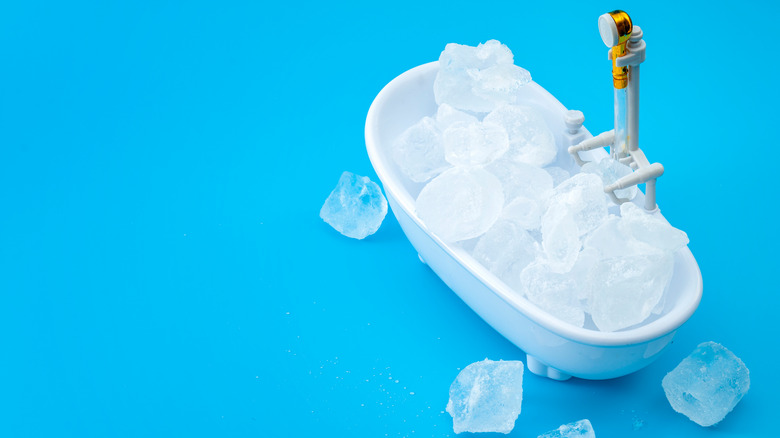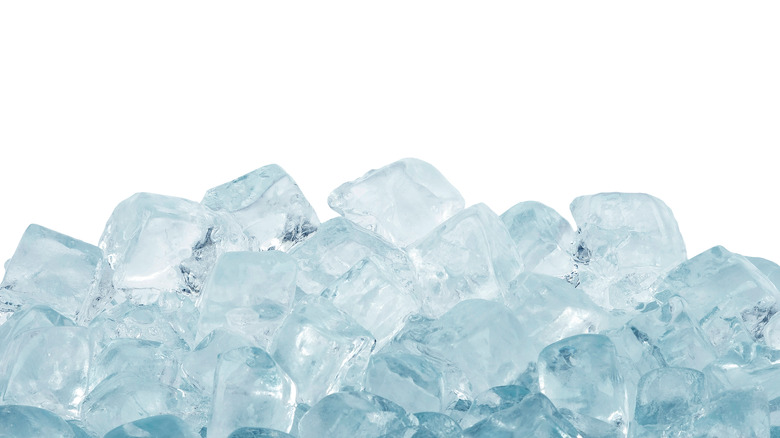What Happens To Your Body When You Take An Ice Bath
It's a common practice for athletes to take ice baths after an intense workout or competition. Coaches and physical therapists often recommend them to help athletes recover and improve their performance — but do they actually work?
Ice baths are a form of cold therapy in which a person submerges themselves in ice-cold water for up to 15 minutes at a time (via Men's Health). Ice baths are meant to constrict your blood vessels and flush out metabolic waste, reducing swelling and tissue breakdown. After you emerge from the water, your body will start to warm up and increase blood flow, facilitating the healing process.
Although ice baths are often used to reduce inflammation and relieve muscle soreness, the research on their effectiveness is inconclusive. A 2018 analysis of nearly 100 studies found that ice baths can reduce delayed onset muscle soreness after exercise, while a 2012 study found that ice baths aren't any more effective at reducing inflammation than other forms of recovery, such as doing low-impact activities after strenuous exercise to cool down, like going for a walk.
The potential benefits of ice baths
Although the data is mixed, there are still some potential benefits to ice baths. While they won't be able to make you a better athlete, they may be able to help improve your recovery. For instance, taking an ice bath may aid your central nervous system (via Healthline). This is because ice baths can improve the quality of your sleep, which may result in more energy during the day. Ice baths may also relieve muscle aches. Cold water immersion can offer temporary pain relief and ease muscle soreness for a certain period of time. Furthermore, taking an ice bath may help minimize potential swelling. This is because ice water can constrict your blood vessels, potentially reducing post-workout inflammation.
While the research on their effectiveness is undetermined, experts still believe there are benefits to ice baths. "There will always be research that will support both sides of this debate," Dr. Thanu Jey, the clinic director at Yorkville Sports Medicine Clinic, told Healthline. "Although much of the research is inconclusive, I side with current best management of professional athletes who regularly use ice baths," he concludes.


